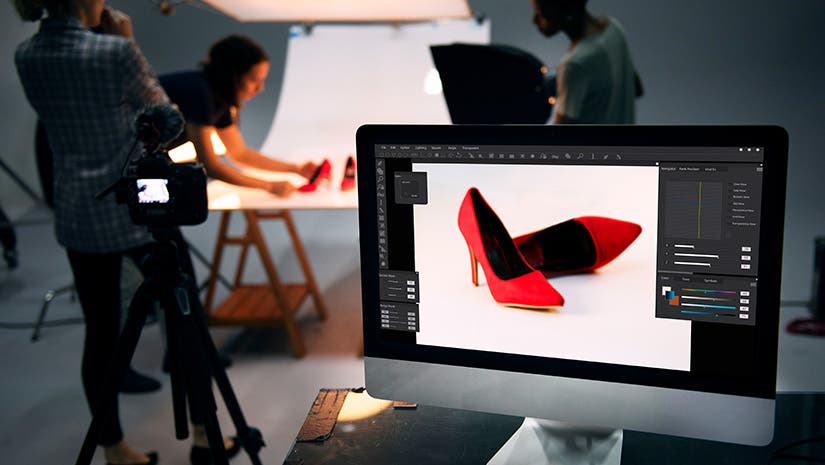When you’re finally ready to make the leap from hobby photographer to professional business person, you’re going to need a few basics, like a camera and probably some photo editing tools. But odds are, you’ve already got those. In addition to those foundational elements, the difference between photography businesses that succeed and those that don’t are a little more nuanced.
Here are the 10 must-have components you’ll need to start your photography business — for real.
1. Something to Sell
This isn’t just a question of having photography skills, or a matter of having the time to go out on jobs. Having something to sell means having a product that is unique and offers potential clients a service they can’t get elsewhere. Artist Ann Rea suggests utilizing the “SWOT” method: Identifying your strengths, weaknesses, opportunities, and threats. Survey the current market in your area, identify who else offers similar services, highlight your strengths, and decide exactly which types of photography you’ll be practicing.
2. Gear
You don’t need a lot of gear, or even the most expensive gear — but you will need the basics for both photography and business. Aside from shooting and editing, you’ll also need tools for marketing and accounting, many of which you can get for a relatively low price.
Whether it’s QuickBooks or Office for Mac, making sure you’re familiar with the business tools you’ll need is an essential first step.
3. A Budget
Personal finance can feel like a big barrier to starting a business, but rather than looking at roadblocks, finance expert Galia Gichon recommends setting goals and sticking with them. Decide where you’d like your business to be in six months or a year, then approach it in what she calls “bite-sized pieces, dollar-specific amount.” You may even consider seeking outside funding. And if you need help? Consult a personal finance expert.
4. A Marketing Plan
Once your product is ready to be unleashed upon the world, and you’re prepared to handle the business element, it’s time to figure out how people will find out about what you’re doing. Consider what kind of PR you want, and what tools you’ll use, including email marketing — a direct, personal approach to reaching your audience — and video content, which can help your potential clients feel like they have a better idea of your services before they book you. There are plenty of resources available to help you make sales and find clients, but just setting up a Facebook page and letting it sit isn’t going to be enough.
5. A Web Presence
That said, you need a website and social media. When potential clients Google around, if you’re not a top hit, they can’t find you. Blogging, Tweeting, and generally keeping up with internet trends is essential; Be where your potential clients are (wedding photography? Start a few Pinterest boards. Outdoor and travel? Get on Tumblr), and they’ll be able to find you, too. Here’s a pro-tip from Duct Tape Marketing co-founder John Jantsch: Use WordPress, which he calls the most powerful tool for building content and acing SEO.
6. A Social Plan
Ok, so you’ve got a website and you’ve got all of the social media pages ready to go. But how do you be a good community member? To read more about why community matters, check out this interview between CreativeLive CEO Chase Jarvis and social marketing expert Brendan Gahan, who lays out some of the smartest social media tools a small business can employ, and how.
7. Friends
Friends are good for a few reasons. First, they can help you populate your aforementioned social media pages (Facebook, for example, requires that at least 25 people like a brand page). But more importantly, they can support your endeavor, help you spread the word, and maybe even lend their knowledge. Got a pal who’s also an accountant? You may want to propose a barter of services come tax season.
8. A Thick Skin
Starting a new business is hard, and you may take some lumps. You may even sometimes feel like a failure. But it’s how you deal with them that will define your business. “What is failure? We fail and then we climb back up.” says master photographer Sue Bryce. Those first not-great Yelp reviews can sting, but take them as a growth opportunity, not a reason to give up. Learn from your mistakes, shrug off hurtful words that aren’t constructive, and keep moving along.
9. Influencers
Photography may seem like a lone-wolf pursuit, but it’s better executed when you’re part of a pack. Identify who you look up to, and be a part of a community that drives you. In his keynote at SXSW 2014, artist and author Austin Kleon mentioned composer Brian Eno’s concept of a “scenius,” which is a “communal form of the concept of the genius.” Instead of working as an independent rogue, find people whose work you love and borrow inspiration. Collaboration, rather than competition, will drive you far.
10. Confidence
No one else is going to believe in your business as much as you are. All the fancy gear, pretty websites, and Twitter followers in the world won’t help drive business if you can’t sell it — and really believe in it.
